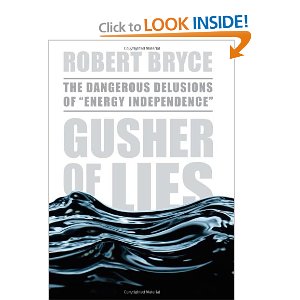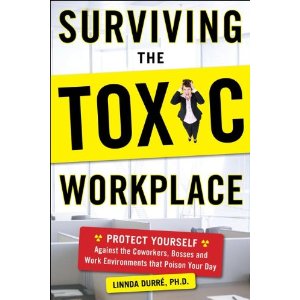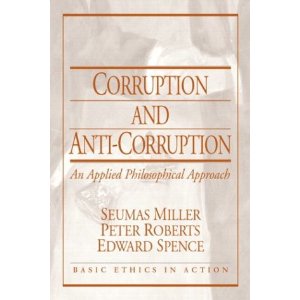
Author Robert Bryce
25 of 26 people found the following review helpful:
| By | Scrutinizing Consumer (Los Angeles, CA) – See all my reviews (Los Angeles, CA) – See all my reviews |
“A Gusher of Lies” is a must-read for those wanting the cold, hard facts on the current state and future prospects of worldwide energy dynamics. Written by Robert Bryce, a fellow at the Institute for Energy Research and energy journalist and author for the past twenty years, “Gusher of Lies” is meticulously researched and footnoted (60+ pages of bibliography and references). It relies on numerical facts, realistic forecasts and opinions of key members of the scientific community to dispel any notion that the United States will ever achieve “energy independence” until another energy source/application, that does not currently exist, is invented. The alarming truth is the United States, along with every other developed country on the planet, are inexorably dependent on fossil fuels and will be for the foreseeable future.
While looking at the numbers, one should ask how “energy independence” has become such a dominant theme. Is it because the Middle East is evil and wants Westerners dead? Perhaps. Perhaps not. The oil behemoths of the Middle East need the West as much as, if not more than, we need them. Oil makes up ~7% of total U.S. imports but accounts for between 65 and 95 percent of Persian Gulf exports, depending on the nation. In the long term, economics tend to supplant all other factors. To claim energy independence will significantly reduce terrorism is a contrivance. While there is no denying that some Middle Eastern players have been linked to Islamic fundamentalists, most terrorist organizations are low-tech in nature and don't need oil dollars. Their financing has been found to come from drugs, human trafficking, weapons trading and other criminal activities. The cost to finance terrorist operations is a rounding error compared to the $5 trillion in annual energy revenues. Not to mention other, rapidly expanding economies will happily buy up much of what the U.S. doesn't in their laser-focused goal to enjoy what the U.S. has for many decades.
Why aren't politicians and special interests clamoring for semi-conductor independence? Semiconductors are also a vital commodity, yet the U.S. imports ~80% of its total semiconductor needs compared to ~60% for oil. The U.S. is also dependent on others for many other crucial commodities – manganese for making steel (100% imported), bauxite for making aluminum (100%), graphite (100%), platinum (91%), tin (88%), titanium (85%)… The list of dependencies goes on and on. So why have so many people latched on to “energy independence” when a brief examination of worldwide energy sources and demand would reveal the absurdity of such a goal in a globally interdependent world? The answer might be found in the term, “energy independence” itself. In the year 2000, a news data base, Factivia, that tracks the use of terms and phrases in major periodicals counted 449 total stories using the phrase. Since 9/11, the use of the term has risen exponentially. In 2006 the term was used in 8,069 stories. Power misers (no pun intended) and others seeking to influence behavior of the masses are always looking for issues that will appeal to, and even manipulate, people's emotions. It is worth mentioning that since “Gusher of Lies” was published in March 2008 the use of the phrase “Energy Independence” has dwindled and been altered. If one listens closely, phrases like “CLOSER to energy independence” and similar semantically adjusted phrases have become more common.
Continue reading “Review (Guest): Gusher of Lies–The Dangerous Delusions of Energy Independence”








